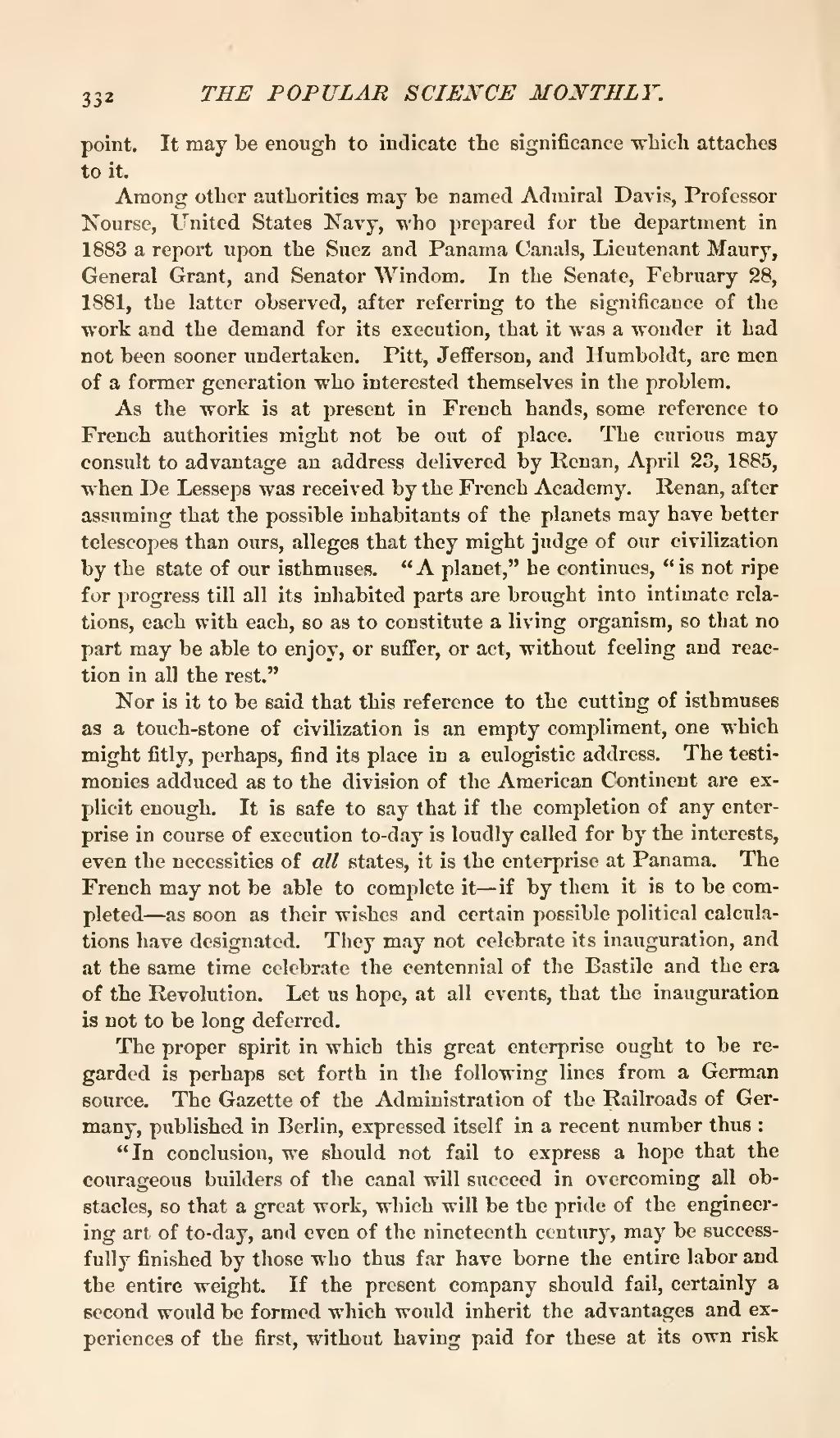point. It may be enough to indicate the significance which attaches to it.
Among other authorities may be named Admiral Davis, Professor Nourse, United States Navy, who prepared for the department in 1883 a report upon the Suez and Panama Canals, Lieutenant Maury, General Grant, and Senator Windom. In the Senate, February 28, 1881, the latter observed, after referring to the significance of the work and the demand for its execution, that it was a wonder it had not been sooner undertaken. Pitt, Jefferson, and Humboldt, are men of a former generation who interested themselves in the problem.
As the work is at present in French hands, some reference to French authorities might not be out of place. The curious may consult to advantage an address delivered by Renan, April 23, 1885, when De Lesseps was received by the French Academy. Renan, after assuming that the possible inhabitants of the planets may have better telescopes than ours, alleges that they might judge of our civilization by the state of our isthmuses. "A planet," he continues, "is not ripe for progress till all its inhabited parts are brought into intimate relations, each with each, so as to constitute a living organism, so that no part may be able to enjoy, or suffer, or act, without feeling and reaction in all the rest."
Nor is it to be said that this reference to the cutting of isthmuses as a touch-stone of civilization is an empty compliment, one which might fitly, perhaps, find its place in a eulogistic address. The testimonies adduced as to the division of the American Continent are explicit enough. It is safe to say that if the completion of any enterprise in course of execution to-day is loudly called for by the interests, even the necessities of all states, it is the enterprise at Panama. The French may not be able to complete it if by them it is to be completed as soon as their wishes and certain possible political calculations have designated. They may not celebrate its inauguration, and at the same time celebrate the centennial of the Bastile and the era of the Revolution. Let us hope, at all events, that the inauguration is not to be long deferred.
The proper spirit in which this great enterprise ought to be regarded is perhaps set forth in the following lines from a German source. The Gazette of the Administration of the Railroads of Germany, published in Berlin, expressed itself in a recent number thus:
"In conclusion, we should not fail to express a hope that the courageous builders of the canal will succeed in overcoming all obstacles, so that a great work, which will be the pride of the engineering art of to-day, and even of the nineteenth century, may be successfully finished by those who thus far have borne the entire labor and the entire weight. If the present company should fail, certainly a second would be formed which would inherit the advantages and experiences of the first, without having paid for these at its own risk

